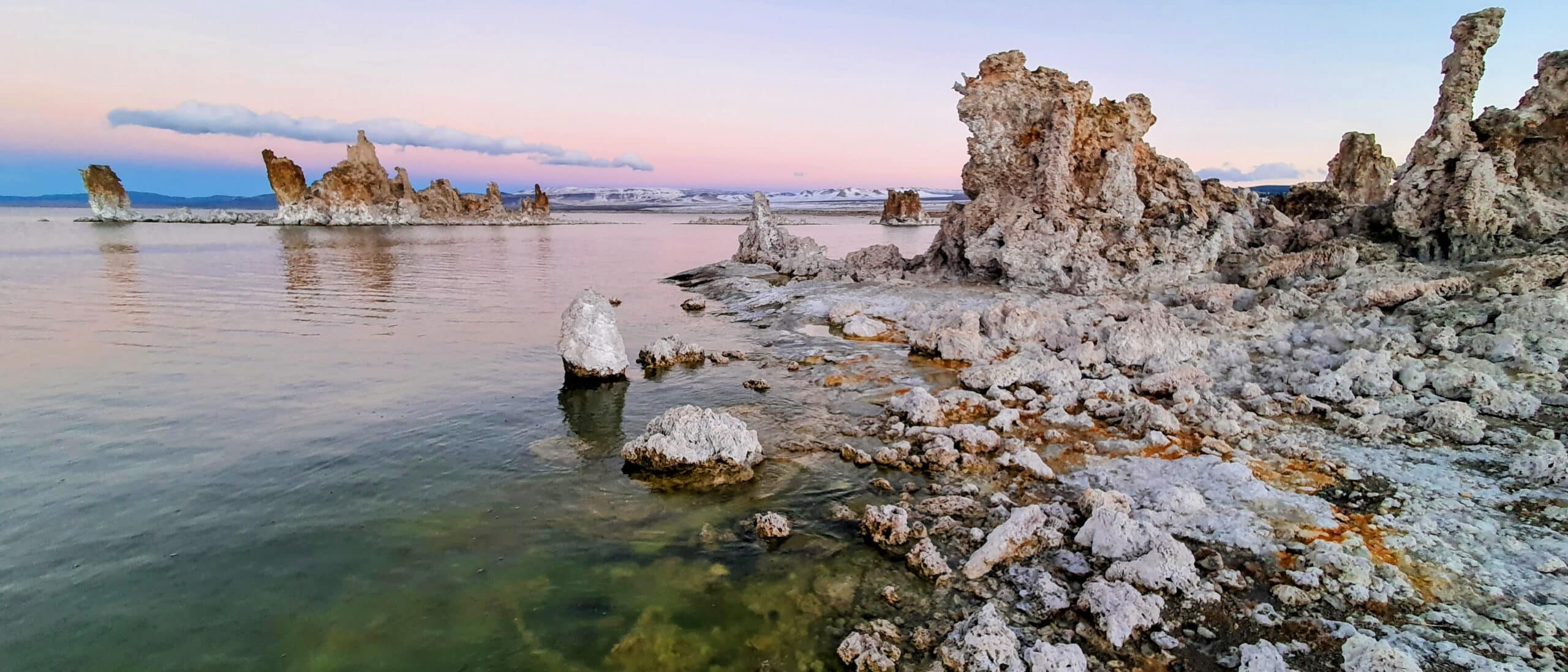
“Planned export is 4,500 acre-feet”—that is the much-anticipated decision from Los Angeles on water diversions from the Mono Basin this year. This means Los Angeles Department of Water & Power (DWP) diversions will not increase from last year, even though existing rules would allow DWP to quadruple their exports from the Mono Basin. This is good news for Mono Lake, because the decision will help preserve the five feet of recent wet year lake level gains.
Thanks and credit for this decision go to Los Angeles Mayor Karen Bass for her leadership, city council and agency leaders, community leaders for speaking up for environmental sustainability, and citywide investment in water resilience such as stormwater capture and other local water conservation measures. It follows a request by the Mono Lake Committee and a diverse coalition of supporters in March to not increase diversions.
It is also a demonstration of Mayor Bass’ leadership and commitment to a sustainable relationship between the City and Mono Lake. The action renews the city’s commitment—made with the Mono Lake Committee 30 years ago—to implement and achieve the healthy Mono Lake level mandated by the California State Water Resources Control Board.
The amount of planned export for this year is set out in the recently released DWP Annual Operations Plan for the Mono Basin. This is the first time in 30 years that DWP has made the choice to take less than the maximum allowed water export by the California State Water Board’s 1994 Decision 1631.
The Annual Operations Plan does provide for a November review of the 4,500-acre-foot commitment that would consider conditions at that time. The Committee looks forward to working with the Mayor and DWP to maintain the plan unchanged.
LA’s choice to leave diversions unchanged has multiple benefits. The first is measurable: Mono Lake will be three vertical inches higher than it would have been if DWP were to take the full 16,000 acre-feet of allowed export. Over the vast 45,000-acre surface of Mono Lake, 3 inches of water is a meaningful difference that will be visible along its 40 miles of lakeshore. And though it is just a fraction of the 8 feet separating Mono Lake today from its required healthy level, the inches quickly add up as the years go by.
The choice is also significant because it recognizes that this type of management action is needed to achieve the long-promised 6,392-foot healthy lake level. The State Water Board expected the management level to be restored a decade ago; however, the lake is only 50% of the way there. With the lake fluctuating at problematic lower levels, it is now clear that a new multi-year plan is needed for diversions that puts Mono Lake on the rise.
Raising Mono Lake the full 8 feet needed to reach 6,392 will solve a multitude of issues, including air-quality-violating dust storms off the exposed lakebed, predation of the California Gull nesting colony, and the productivity of brine shrimp and alkali flies, which benefits millions of nesting and migratory birds. Maintaining lake level gains from wet years is absolutely critical to long-term lake level rise—a reality that has become clear in the 30 years since State Water Board Decision 1631 mandated the healthy lake elevation of 6,392 feet above sea level.
While DWP’s plan is a step in the right direction, there is still a long road ahead for Mono Lake. The State Water Board is planning a hearing to address the need for a long-term change in approach to diversions in order to raise Mono Lake and to maintain lake level gains.
Top photo courtesy of Noam Bedein.
